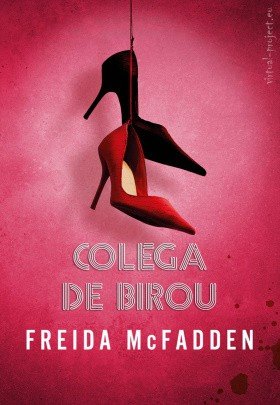I took it in and gave her my word.
“Adam, I’m not joking. You need to leave this alone.”
I felt for my hurting cheekbone. “Is Dr. Bahari still alive?”
“Yes. And he’s still sketchy as they come.”
“Okay, but where?”
“Last I checked he was running some kind of vitamin company in Playa Vista, but—”
“Well, I could just—”
“No, Adam. Last April, Devon found me, and he came here. I begged him not to go digging into all this and he didn’t listen.”
She raised eyebrows.
“That’s what happens when you fuck with the past.”
“So…is Bahari the reason you stayed away?”
Her eyes did a funny dance of apprehension, she shook her head a little and grabbed my hand, put her face close to mine and cut to a whisper. “I stayed away because I knew that every street corner would remind me of Emil’s smile. And I’m never going back again.”
I took it in.
She said, “Are you going to tell Charles you saw me?”
“Not a chance.”
“How much time does he have left?”
“I don’t know. Not much.”
Our eyes met—hers were pleading. Then she gave me a kiss on the cheek and said, “Get out of here.”
The woman who once so long ago ran for her life and never stopped running. The woman who thirty-six hours ago wasn’t even alive. Now it killed to think I’d never see her again.
 30
30
Back in the car, I wasn’t still drunk exactly, but the night’s long, dark glow hung around me like a personal heatwave. I wrote a text apologizing to Endi for flaking on dinner and promised to drop by the next day—no response.
The night sky was vast, twinkling eternal mystery.
I gassed up at Chevron and was about to hit Highway 10 heading for Los Angeles, when I remembered I had a crappy boom box in the trunk, one of those mono-speaker jobs. I’d picked it up on my last case. I pressed play and the little rollers still spun—batteries not dead yet.
I got behind the wheel and popped in the cassette demo as I took the long curve through the desert, past ancient rock formations and cascading mountains, under the wash of stars, glowing like Cinnamon’s Chaplin-esque smile, the laughing sorrow of a grown woman full of trapped teenage light.
But she lived. And I saw her.
I pressed play. Hard-hitting precision drums, a splash of large wide guitar like a crack of thunder—from the first note, Telegraph sounded different, very. More confident, deliberate, ahead of the beat—and then the voice kicked in and it was really different. Maybe it was Sandoz, but it sure didn’t sound like him—this was crooner majestic, with just a tint of British and a timbre that verged on pro.
The big wide world
it’s been sneaking up on us
I drove in a trance, shooting down the highway night. I cut the windows, letting the big sound mix with the breeze. Gone was the folk rock, the wannabe Dylan strumminess. Gone was Grunes’s hinky bass, Hawley’s Farfisa organ. This was ready-for-radio stuff, cascading and plunging like a waterfall into a smooth lake of harmony. A percolating synth rhythm drove the whole thing forward, pedal to the metal—had Bahari tacked it on?
The big wide world
it’s been waiting on us
sneakin’ up on us
Emil’s splashy guitar had been treated by some special chorus or reverb or something—one of those plasticky eighties pedal effects that maybe sounded modern then but seem old-fashioned now.
Just around the corner
into the big wide world
Then, without warning, his solo erupted like a geyser from the spaciousness, cycloning above the groove, chasing after some secret force. The urgency of his melodic sense, the erotic power of it, pure Emil—thrilling, reckless, thin ice. He built it and pushed it and raced it to the magic high, and the night desert spread out before me as grand and alive and mysterious as Mars. If this was what Emil was capable of, no wonder—no wonder he won every heart, no wonder they called him the brave one.
And no wonder he was marked for death.
Without notice, the solo made way for the chorus on return, and I knew I had to hear it again, the whole song, so I pressed rewind and play. It was pop, it was slick, glossy, melodramatic, far from the practice garage earnestness that made their unreleased LP so sweet—no, this was…grandiose even, but I had to admit one painful and undeniable thing: I liked it.
I liked it and I hated myself for liking it.
Maybe that’s why I couldn’t stop playing it—from Vista Chino to Beaumont, under fading, taunting stars, I clung to it, one hand on the boom box. As soon as the fade kicked in, I’d rewind and fire it up again and rest my hand on the buttons like a nervous air traffic controller. I must have played it ten times in a row, but I needed to hear it just once more—because it contained some something, some secret code, beyond the case even—the shape of the mystery, of Cinnamon and Emil, of being young and in love, all of it slipping away with brutal quickness.

























